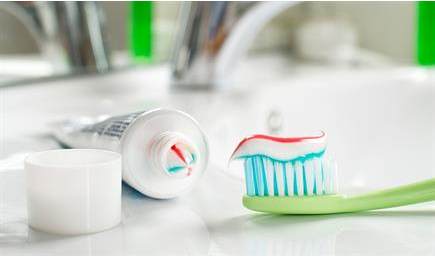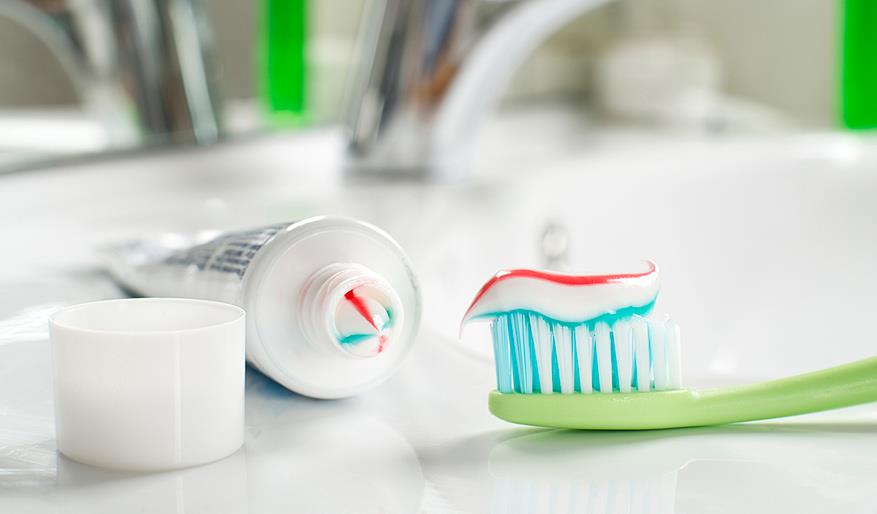Every day, twice a day. Cleaning your teeth is a simple, daily habit, but choosing toothpaste can be a trickier task. With countless brands and an overwhelming number of claims to choose from, getting the “right” toothpaste can be confusing.
However, by understanding exactly what’s in toothpaste and what those ingredients do, deciding which one is best for you is much easier.
What’s toothpaste made of?
Check out the ingredients list of toothpaste and you’re likely to find the following:
- Fluoride: This is the most essential ingredient. It helps to prevent tooth decay and gum diseases by removing plaque and thus protecting teeth from cavities. Your toothpaste should contain at least 1,000 parts per million (ppm) fluoride.
- Abrasives: Calcium carbonate and other mild abrasives are key ingredients too. They scrub away stains and debris when you brush your teeth.
- Flavor: The sweet, fresh feeling you get from brushing is due to flavoring agents. Many brands use artificial sweeteners like saccharin or sorbitol as a sugar substitute. Ingredients like lime and neem can also be found in toothpastes. These ingredients don’t, however, offer a hygienic benefit to your teeth.
- Detergent: Ingredients like sodium lauryl sulfate (SLS) are used to create the foam that forms when you brush. However, some people are sensitive to SLS and it can cause problems like irritation or abrasions. Try and pick a toothpaste without SLS if you’re experiencing mouth sores or ulcers.
- Thickeners and humectants: These ingredients are essential for a smooth, creamy and uniform texture. They help retain water and bind the toothpaste together. Cellulose is often used as a thickening agent, while glycerol and sorbitol are some common humectants.
Decoding common toothpaste claims
Every toothpaste brand tries to offer you an individual benefit to meet your dental hygiene needs. But what do these actually mean?
- Anti-cavity: Any toothpaste that contains fluoride helps prevents tooth decay. Anti-cavity toothpastes though may have a higher level of fluoride in their formula. These levels are even higher in prescribed anti-cavity toothpastes.
- Tartar control: If plaque, (a sticky bacterial film that coats your teeth) is allowed to build up by not brushing and flossing enough, it can harden over time and turn into tartar, causing staining and discoloration . Tartar control toothpastes contain tetrasodium pyrophosphate, which can help reduce the build-up, however, once tartar has formed, only a visit to your dentist will remove it.
- Whitening: Like their anti-cavity counterparts, whitening toothpastes also contain a common ingredient: abrasives, only at a slightly higher level. These abrasives help remove stains on the enamel of your teeth but will not whiten them.
- Desensitizing: This is for people who experience sharp pain in their teeth whenever they eat something hot, cold or sweet. Sensitive or desensitizing toothpastes help calm the sensitivity of nerves around your teeth to prevent or minimize the pain.
- Enamel repair: While your teeth repair their enamel naturally, tooth decay and other damage may slow down this process. Enamel repair toothpastes contain minerals that claim to help repair the damage. Cleveland Clinic Abu Dhabi general dentist, Hadie Rifai advises, “Using a toothpaste which contains at least 1000 parts per million fluoride will help to restore enamel, provided decay hasn’t already set in.”
- Natural alternatives: Like any other self-care product, toothpaste too offers its own variety of natural brands. You can now find brands that substitute fluoride and SLS with baking soda (as a light abrasive) and activated charcoal (for plaque control and whitening). Some brands also include aloe vera, cinnamon, natural oils and more, for a mix of various benefits.
Which toothpaste works best for you?
Unless you have a severe oral condition that requires a prescribed brand, most toothpastes will work for you in more or less the same way. What’s important is that you brush properly, twice daily, and visit your dentist regularly to keep your teeth healthy.

